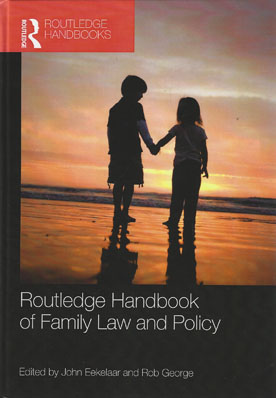
Changes in family structures, demographics, social attitudes and economic policies over the last sixty years have had a large impact on family lives and correspondingly on family law.
This book considers the difficulties family law is attempting to cope with within jurisdictions, focusing on the key contemporary policy challenges facing family law. The specially written chapters draw on empirical research from the social sciences and demography to demonstrate how these issues are affecting family policy and uses this evidence to draw conclusions about the ways in which family law may develop in the future.
Featuring contributions from a range of renowned global experts, the book does not limit itself to dealing with one jurisdiction but offers comparative analysis looking at circumstances in a range of countries.
The book addresses a range of issues including: The role of the state in supporting families children's rights and parental authority sexual orientation and sexuality in family law the status of marriage the relationship between civil law and the law of minority groups This advanced level reference work will be essential reading for students, researchers and scholars of family law and social policy as well as policy makers in the field.